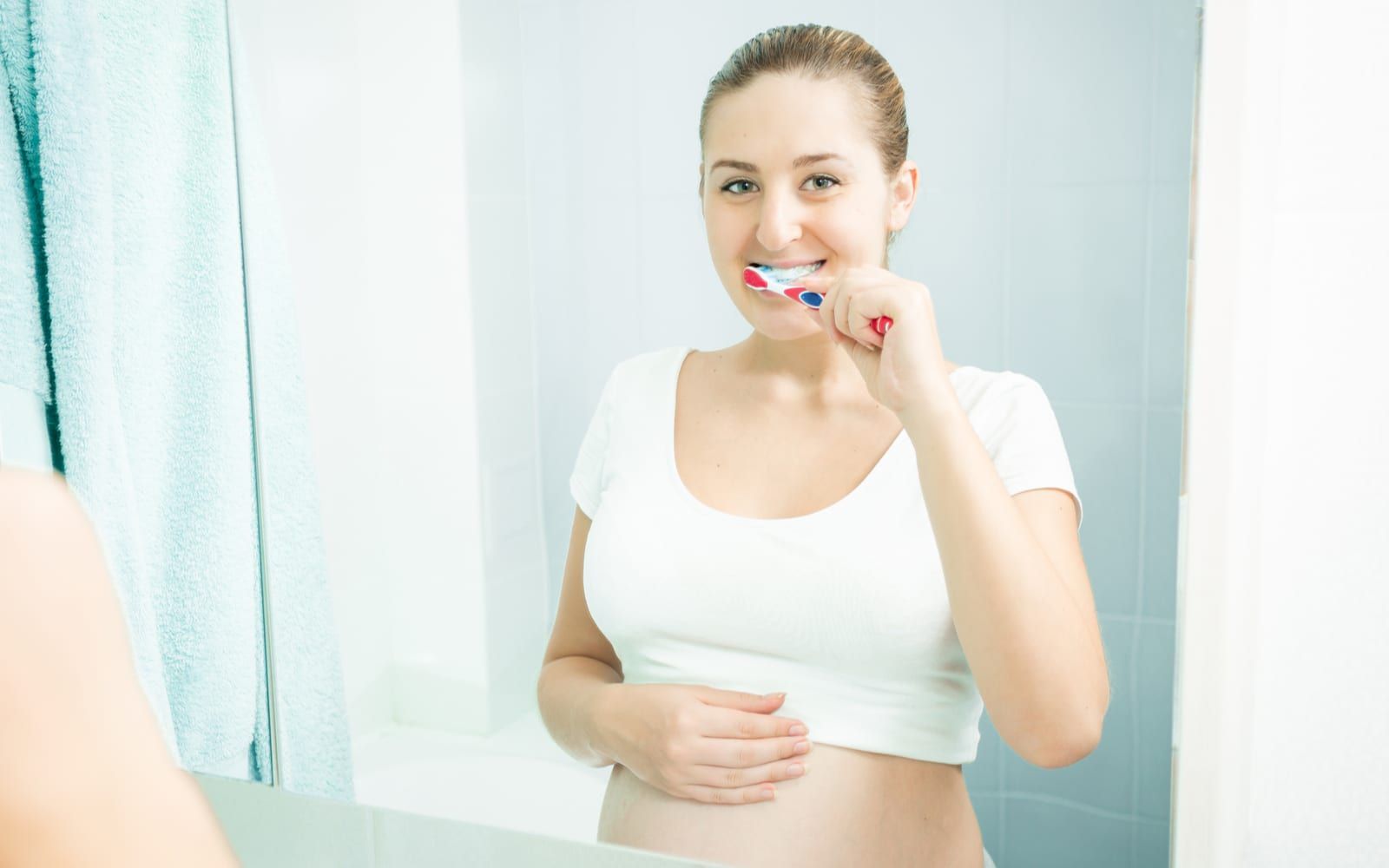Useful Dental Care Tips For Both Mom and Baby

If you’re pregnant, congratulations! Having a new member of your family can be an exciting and nerve-wracking time, and you’re probably looking for all the tips you can to make sure your pregnancy is safe and successful for your newborn. Your OB/GYN has probably recommended the many usual tips, such as taking folate supplements, limiting your caffeine intake, and avoiding alcohol at all costs. But if they didn’t tell you about maintaining good oral hygiene, then we’re here to tell you that having healthy teeth and gums is just as important for a successful delivery.
Because for many women, poor dental health is a problem. Having cavities, gum disease, and even ulcers can present problems for women later on in their trimester and can present oral problems for your newborn in their future. But don’t worry! We’re here to help provide you with the best tips possible for that wondrous day.
Ways That Pregnancy Can Affect Your Oral Health
Many studies have repeatedly shown that the hormones produced during pregnancy, including estrogen, testosterone, and progesterone, can contribute to a higher rate of gingivitis in pregnant women. This is often due to how these hormones cause inflammation throughout the body as it’s working to develop and feed nutrients to that newborn inside you, and thus can make the gums more irritated than usual. As a result of this inflammation, your teeth and gums can become more vulnerable to oral diseases such as cavities, periodontal disease, dry mouth, and even tooth loss.
So, why is this issue so prominent to you and your pregnancy? Well, that’s because having periodontal disease has been linked to an increased risk of premature births. Approximately 18% of premature, low-weight births have been born prematurely as a result of periodontal disease and are thus associated with a higher infant mortality rate. For women at high risk of preeclampsia, women with this condition are also three and a half times more likely To have periodontal disease than those without preeclampsia.
With both of these scary statistics in mind, we highly emphasize care with your oral health because the presence of cavities, gum disease, and other tooth problems can translate to your newborn and increase their risk of tooth problems later on in their lives.
Tips For Tooth Care During Pregnancy
For many women, gingivitis is an unavoidable aspect of their pregnancy. However, you can follow these tips for good dental health and help reduce the risk of your gingivitis turning into periodontal disease:
- Wait and Rinse: If you experience nausea during your brushing time, then one way to help is to wash out your mouth with water and wait at least 30 minutes before trying again.
- Minimize Carbohydrates: Simple carbohydrates are some of the worst foods for your teeth because they’re the number one food for bacteria to develop plaque around your teeth and gums.
- A Vitamin-Rich Diet: Having a vitamin-rich diet filled with vitamin D, C, A, and E can help fortify your child’s bones, muscles, and immune system and contribute to healthy baby birth.
- Brush and Floss: Always brush and floss your teeth at least twice daily, and if needed, change up your toothpaste and toothbrush for a better experience.
If you have any more concerns you’d like to bring up, then the best resource for caring for your teeth is to contact your pediatrician or pediatric dentist for more information.

